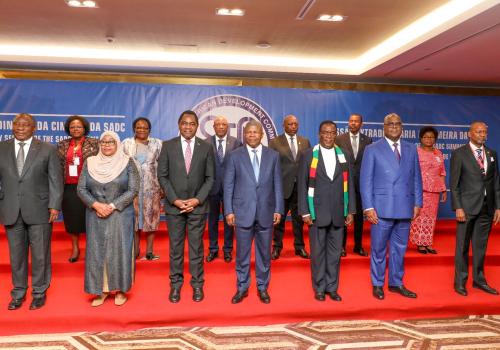For almost two weeks, chaos have rocked the Mozambique following the victory of the FRELIMO candidate, Daniel Chapo, in the concluded presidential elections.
- Amnesty international reported on Wednesday that at least 20 people have been killed by security forces, with hundreds more injured and arrested since the protests began in late October.
- The opposition leader who came second in the presidential election – Venancio Mondlane of PODEMOS – fled the country to South Africa after members of his party were killed on the run up to the announcement of the electoral results.
- Mondlane claimed in a video posted on Facebook earlier this week that he was in “mortal danger” after an assassination attempt while in exile.
The opposition accused FRELIMO of rigging the polls, in addition to concerns by EU observers that there were irregularities and alterations of results. Mondlane then called for a general strike, which has defied calls from the government for citizens to return to work, and threats that it would unleash the army if order was not restored.
Internet access has been restricted several times and social media sites blocked, limiting the veracity of information concerning the crisis. The first restriction occurred on the 25th October, followed by another restriction six days later. The crackdown has prevented journalists and activists from adequately relaying information.
“Internet restrictions in Mozambique reflect a growing trend of government limiting access during political unrest, impacting safety and essential information flow. These shutdowns disrupt daily life, from business to education, and pose a significant threat to open internet and free speech in the region,” said Justas Pukys, VPN Product Manager at Surfshark, a cybersecurity company.
Why Maputo’s Crisis is a Regional One
Chapo is slated to replace his predecessor Filipe Nyusi, who has served the constitutionally limited terms. The crisis will further deepen the economic woes of Mozambique as well as its landlocked neighbours which depend on the country’s ports for international trade.
The protests have destabilized the Southern African nation, prompting neighbours like South Africa to shut its border post and strengthen its security around the area. The Southern African Development Community (SADC) will convene in Zimbabwe next week to address the crisis in Mozambique.
Statistics show that in 2022, Kenya and Mozambique traded mainly in chemical products, metals, and foodstuffs. Kenya imported goods worth KSh 5.2 billion from Maputo that year. In August last year, President William Ruto guaranteed that the government will ramp up its trade volume with Mozambique




